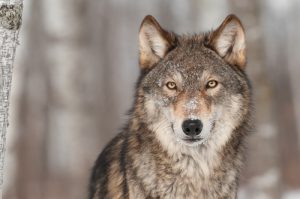
U.S. Reps. Greg Walden (R-OR), Cathy McMorris Rodgers (R-WA), Tom Emmer (R-MN), and Pete Stauber (R-MN) last week applauded action by the U.S. Department of Interior to delist the gray wolf in the lower 48 states.
The official delisting of the gray wolf from the Endangered Species List is based on evidence that the wolves’ numbers are healthy and stable following decades of federal protection, according to the U.S. Fish and Wildlife Service (FWS), which made the announcement on Oct. 29, adding that both the Mexican gray wolves and red wolves still are considered endangered.
“Oregon’s wolf population grew over 15 percent last year, and meanwhile, wolves continue to kill livestock in the area under federal management, with little recourse for local ranchers,” Rep. Walden said last week, calling the Trump administration’s action long overdue. “This move will allow our state wildlife officials to manage the wolves more effectively by allowing for a single management plan under local control,” said Rep. Walden.
Rep. McMorris Rodgers agreed, adding, “By delisting the gray wolf and restoring local decision-making, we can allow people in our state and community to use science-based wolf management practices that will benefit both our endangered and native animals while protecting farmers and ranchers.”
The FWS first proposed delisting the gray wolf in 2013 under the Obama administration, but litigation from conservationists and other groups stalled the process.
“Thank you to the Trump administration for respecting local decision-making and delisting this recovered species in the lower 48 states,” the congresswoman said.
Rep. Stauber noted that he has heard from concerned constituents about the gray wolf issue since arriving in Congress, “including farmers who have lost thousands of dollars’ worth of cattle, sheep and even pets to gray wolves along with our deer hunting community who have seen whitetail deer herds decline. Farmers deserve to defend their livelihoods.”
In fact, Minnesota is home to 16,000 beef and cattle producers that generate $4.9 billion dollars of economic activity, according to Rep. Emmer. “But Minnesota is also home to the largest population of gray wolves in the contiguous United States that threaten that livestock,” he said.
“This is the solution we have long needed, and I am incredibly grateful to the administration for their move to delist the gray wolf and return conservation efforts back to local control,” said Rep. Emmer. “Minnesotans have demonstrated that we can effectively steward our land and its wildlife, while protecting livestock and the livelihoods of the agriculture community.”



